DeFi
Congress battles over DeFi, while Trump’s silence speaks volumes
Published
3 months agoon
By
admin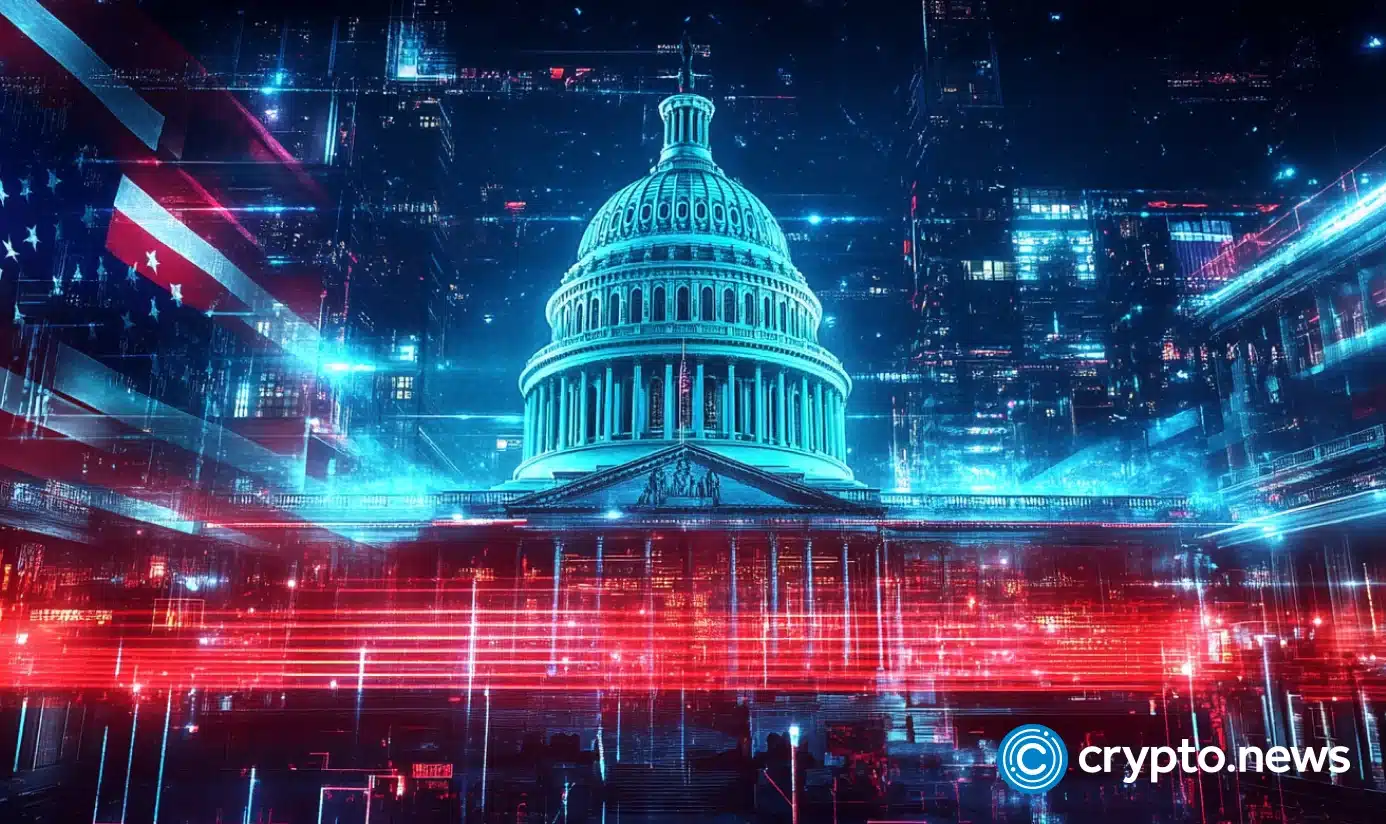
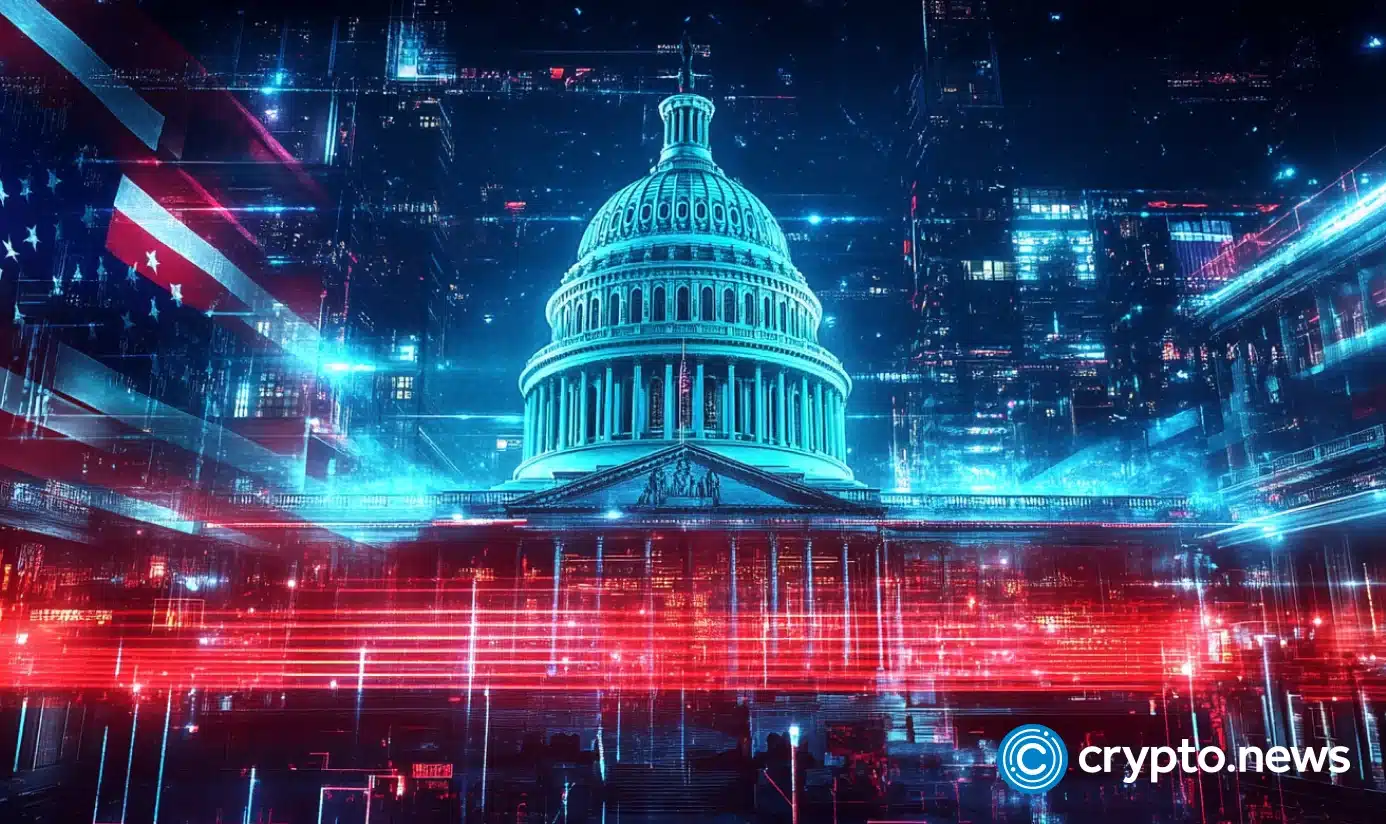
As Democrats and Republicans argue over DeFi, what message does Trump’s silence send to the crypto community? Is it a sign of disinterest or strategic neutrality?
DeFi gets the spotlight
On Sep. 10, the first-ever Congressional hearing on decentralized finance took place, marking an important moment in the evolution of this technology.
Titled “Decoding DeFi: Breaking Down the Future of Decentralized Finance,” the hearing was led by Congressman French Hill and lasted nearly two-and-a-half hours.
U.S. lawmakers gathered to discuss both the potential benefits and risks that DeFi could introduce to the financial system.
The hearing exposed a clear divide among lawmakers. Republicans, led by Hill, were optimistic about DeFi’s ability to remove intermediaries and transform financial markets.
As Hill stated, “by substituting intermediaries for autonomous, self-executing code, decentralized finance can shift the way financial markets and transactions are currently structured and governed.”
Meanwhile, Democratic lawmakers raised concerns, focusing on DeFi’s potential misuse, particularly its role in enabling criminal activity. While Republicans called for lighter regulations, Democrats advocated for stricter oversight, citing the risks of illicit use.
What does this hearing mean for the future of DeFi and the broader crypto market, especially with the U.S. presidential elections approaching?
A clash of perspectives on DeFi
The hearing itself turned into a battlefield of opinions, with sharp contrasts in how lawmakers viewed DeFi. The subcommittee chair, Hill, kicked off the discussion by focusing on the opportunities DeFi and tokenization could offer to finance.
However, not everyone saw it that way. Congressman Brad Sherman, a Democrat from California, took a more critical approach. He expressed concerns that DeFi might be nothing more than a tool for tax evasion, especially for the ultra-wealthy.
What we have here is an effort to liberate billionaires from income taxation… Every time a billionaire successfully cheats on his taxes, a member of the Freedom Caucus earns his wings.
In response to Sherman’s concerns, Peter Van Valkenburgh, director of research at Coin Center, provided a counter-argument. He acknowledged that tax evasion is a crime but pointed out that DeFi’s transparent, decentralized ledger makes it difficult for bad actors to hide their activities.
Tax evasion is a crime. It should be aggressively policed. I do not, however, think that tax evasion and its existence warrants a 100% surveilled and controlled financial system.
Van Valkenburgh also pointed out the confusion surrounding tax guidance from the IRS. He argued that many crypto users want to comply with tax laws but lack clear instructions on how to do so.
A difficult area in the cryptocurrency space has been getting clear tax guidance from the IRS on how Americans can pay their taxes when they earn capital gains, or perhaps their wages, on these networks
He added that criminals are more likely to use traditional financial systems to hide illicit funds rather than transparent blockchain networks.
On the other side, Mark Hays, Senior policy analyst at Americans for Financial Reform, painted DeFi in a less favorable light. He described the space as volatile and rife with scams, where investors often face devastating losses.
Hays stressed that DeFi should not get a free pass and that existing securities laws should apply to decentralized systems to protect investors.
Meanwhile, Amanda Tuminelli, the chief legal officer at DeFi Education Fund, took a different approach. She highlighted DeFi’s potential to democratize finance. According to Tuminelli, traditional financial systems rely on intermediaries, often acting as gatekeepers.
“Big banks can and do deny access to the system for discriminatory reasons or no reasons,” she stated, contrasting this with DeFi’s open-access nature. She suggested that anyone with an internet connection can use DeFi, calling it “the epitome of financial inclusion.”
Tuminelli argued that treating DeFi as traditional finance is not the right approach, as the underlying structures are fundamentally different. She suggested that regulations should take into account the self-custodial nature and transaction anonymity of decentralized systems.
Crypto left out of the presidential debate spotlight
Vice President Kamala Harris and former President Donald Trump faced off on Sep. 10 in the second presidential debate of the 2024 election. Despite Trump’s well-known pro-crypto stance, the debate avoided any mention of crypto entirely.
Instead, the focus was on traditional economic issues, with no reference to crypto, blockchain, or broader financial technology topics.
Harris’ strong performance during the debate appeared to unsettle Trump, particularly as he struggled to defend his position on contentious issues like abortion.
All of this seemed to affect the crypto market, as Bitcoin (BTC) dropped from around $58,000 to $56,000 after the debate. As of Sep. 11, it has slightly recovered, hovering around $56,800.
Ethereum (ETH), the second-largest crypto by market cap, also experienced a minor dip of about 0.5%, trading at around $2,340 during the same period.
In a surprise for Trump, who has long positioned himself as a champion of deregulated financial markets, his odds of winning, according to online betting platform Polymarket, fell from 52% before the debate to 50% as of this writing.
Meanwhile, a CNN flash poll reflected Harris’ dominance, with 63% of viewers stating she outperformed Trump. However, most respondents noted that the debate wouldn’t influence their vote in November.
As the campaign continues and the demand for a third debate grows, it remains to be seen whether crypto will finally take center stage.
What to expect next?
Throughout the Biden administration, Democrats have consistently been skeptical of crypto, highlighting the risks and pushing for stronger regulations. Amid this, Vice President Kamala Harris has remained silent on the issue, making her stance unclear.
Meanwhile, Trump, who once strongly opposed crypto, has shifted his tone in an effort to attract pro-crypto voters. In recent months, Trump has shown more openness toward blockchain and crypto on several instances.
However, like Harris, he has remained silent when it matters most, such as during the Trump vs. Musk Twitter space conversation in August and again during the second presidential debate, where crypto was notably absent.
The future of crypto and DeFi in the U.S. remains uncertain. With the upcoming election, how the next administration handles this growing sector could have a lasting impact on both innovation and regulation in the financial space.
Source link
You may like
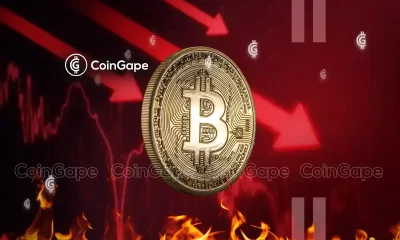

BTC Risks Falling To $20K If This Happens


Most Layer 2 solutions are still struggling with scalability


Here’s why Stellar Price Could Go Parabolic Soon
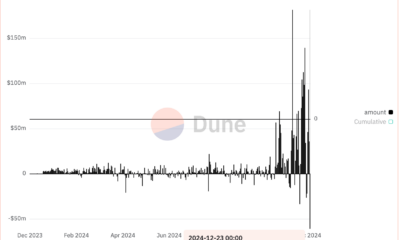

Perp-Focused HyperLiquid Experiences Record $60M in USDC Net Outflows


Experts say these 3 altcoins will rally 3,000% soon, and XRP isn’t one of them


Robert Kiyosaki Hints At Economic Depression Ahead, What It Means For BTC?
DeFi
DeFi Protocol Usual’s Surge Catapults Hashnote’s Tokenized Treasury Over BlackRock’s BUIDL
Published
20 hours agoon
December 22, 2024By
admin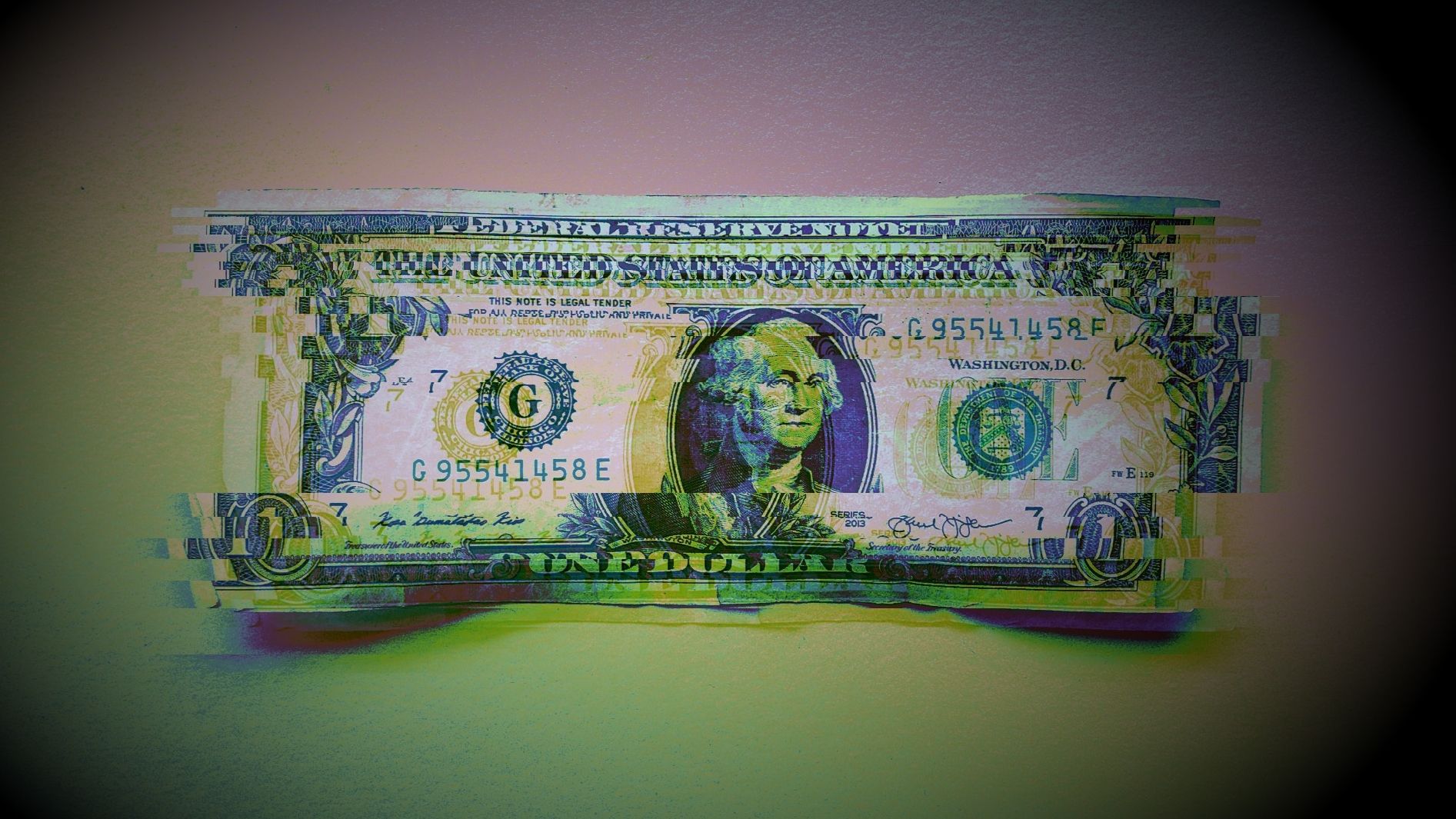
There’s been a change of guard at the rankings of the $3.4 billion tokenized Treasuries market.
Asset manager Hashnote’s USYC token zoomed over $1.2 billion in market capitalization, growing five-fold in size over the past three months, rwa.xyz data shows. It has toppled the $450 million BUIDL, issued by asset management behemoth BlackRock and tokenization firm Securitize, which was the largest product by size since April.

USYC is the token representation of the Hashnote International Short Duration Yield Fund, which, according to the company’s website, invests in reverse repo agreements on U.S. government-backed securities and Treasury bills held in custody at the Bank of New York Mellon.
Hashnote’s quick growth underscores the importance of interconnecting tokenized products with decentralized finance (DeFi) applications and presenting their tokens available as building blocks for other products — or composability, in crypto lingo — to scale and reach broader adoption. It also showcases crypto investors’ appetite for yield-generating stablecoins, which are increasingly backed by tokenized products.
USYC, for example, has greatly benefited from the rapid ascent of the budding decentralized finance (DeFi) protocol Usual and its real-world asset-backed, yield-generating stablecoin, USD0.
Usual is pursuing the market share of centralized stablecoins like Tether’s USDT and Circle’s USDC by redistributing a portion of revenues from its stablecoin’s backing assets to holders. USD0 is primarily backed by USYC currently, but the protocol aims to add more RWAs to reserves in the future. It has recently announced the addition of Ethena’s USDtb stablecoin, which is built on top of BUIDL.
“The bull market triggered a massive inflow into stablecoins, yet the core issue with the largest stablecoins remains: they lack rewards for end users and do not give access to the yield they generate,” said David Shuttleworth, partner at Anagram. “Moreover, users do not get access to the protocol’s equity by holding USDT or USDC.”
“Usual’s appeal is that it redistributes the yield along with ownership in the protocol back to users,” he added.

The protocol, and hence its USD0 stablecoin, has raked in $1.3 billion over the past few months as crypto investors chased on-chain yield opportunities. Another significant catalyst of growth was the protocol’s governance token (USUAL) airdrop and exchange listing on Wednesday. USUAL started trading on Binance on Wednesday, and vastly outperformed the shaky broader crypto market, appreciating some 50% since then, per CoinGecko data.
BlackRock’s BUIDL also enjoyed rapid growth earlier this year, driven by DeFi platform Ondo Finance making the token the key reserve asset of its own yield-earning product, the Ondo Short-Term US Government Treasuries (OUSG) token.
Source link
Aave
AAVE Dominates DeFi Lending – Metrics Reveal 45% Market Share
Published
1 week agoon
December 15, 2024By
admin
Aave (AAVE), the leading decentralized finance (DeFi) lending protocol, has captured the spotlight with an extraordinary surge of over 200% since November 5. Outperforming the broader market, AAVE has reached its highest levels since 2021, marking a remarkable recovery and reaffirming its dominance in the DeFi ecosystem.
Related Reading
Key metrics from IntoTheBlock underscore AAVE’s unmatched position in the lending sector. With an impressive 45% market share, it remains the top choice for users seeking decentralized borrowing and lending solutions.
With AAVE trading at multi-year highs and on-chain data suggesting robust activity, the altcoin’s trajectory remains a focal point for investors and analysts alike. The question is whether the price can sustain this momentum and reach new all-time highs in the coming months.
AAVE Keeps Growing
Aave (AAVE) has shown consistent growth over the past year, solidifying its position as a market leader in the DeFi lending sector. Known for its innovative approach to creating non-custodial liquidity markets, Aave enables users to earn interest on supplied and borrowed assets at variable interest rates. This approach has made Aave a go-to protocol for decentralized borrowing and lending.
For years, Aave has been at the forefront of DeFi innovation, continually enhancing its platform and user experience. Its success is evident in its market dominance. Metrics from IntoTheBlock highlight Aave’s unrivaled leadership, boasting an impressive 45% market share in the DeFi lending space.
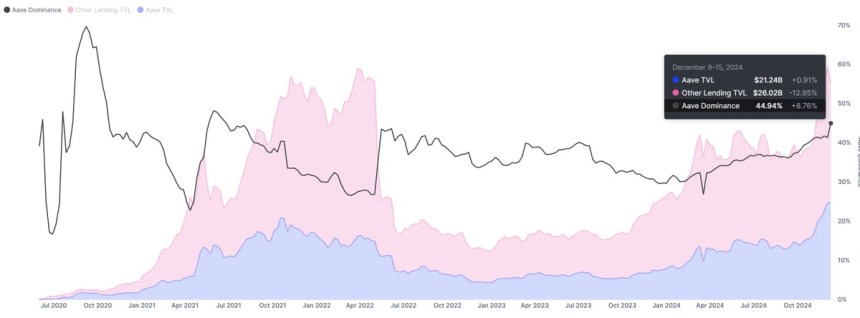
This dominance is further emphasized by Aave’s staggering total value locked (TVL), which stands at $21.2 billion—almost equal to the combined TVL of all other lending protocols.
Related Reading
Such figures underline Aave’s critical role in the DeFi ecosystem. Its established presence and robust infrastructure position it as a key player in the event of a broader DeFi resurgence. Should the sector heat up in the coming weeks, Aave is likely to attract significant attention from investors and traders.
Price Targets Fresh Supply Levels
Aave (AAVE) is currently trading at $366, following a surge to a multi-year high of $396 just hours ago. The altcoin continues its upward momentum as it approaches the critical $420 resistance level, a threshold last held in September 2021. This mark is seen as a pivotal area for AAVE’s next phase of price action, with many analysts expecting a significant reaction once tested.
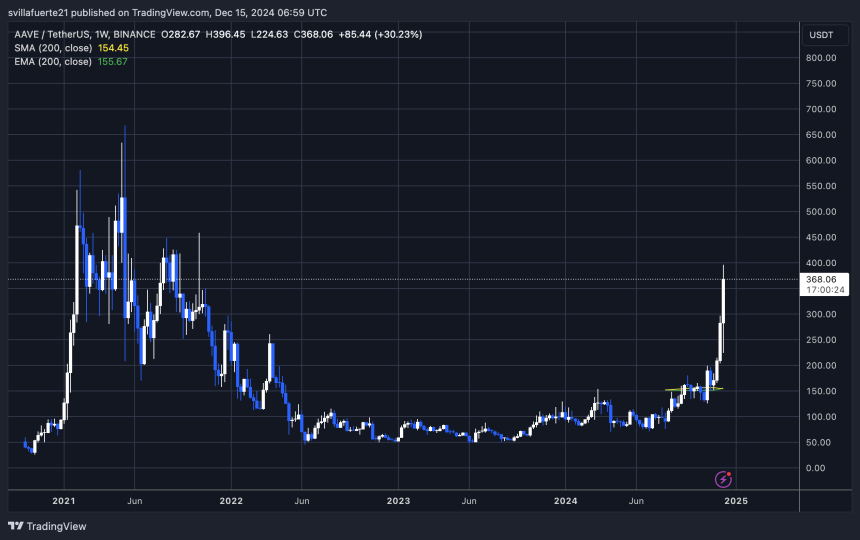
If AAVE manages to hold its current levels and sustain the bullish momentum, the next logical target would be the $420 resistance zone. Breaking above this level could signal a continuation of its multi-month rally, setting the stage for even higher price targets as investor confidence builds.
On the downside, failure to maintain support above the $320–$340 range could lead to a broader correction. A move below this zone might push the price lower, erasing some of its recent gains and dampening bullish sentiment in the short term.
Related Reading
AAVE remains in a strong position for now, but traders are closely monitoring its price action near these key levels. Whether it can sustain its upward trajectory or faces a pullback will depend on its ability to break and hold above significant resistance zones.
Featured image from Dall-E, chart from TradingView
Source link
Blockchain
Dogeson, Shiro Neko, Orbit among Saturday’s largest gainers
Published
1 week agoon
December 15, 2024By
admin
Three coins have risen to the top of the leaderboard: The Dogeson, a playful nod to Elon Musk, his son and Dogecoin; Shiro Neko, a cat-themed token tied to gaming and NFTs; and Orbit, a space-inspired coin.
These tokens topped the gainers’ charts on Saturday night. Here’s a closer look at each.
Dogeson
The Dogeson (DOGESON), a Doge-inspired coin named after an edited photo Elon Musk posted of himself and his son, X Æ A-12, is up more than 90% at last check Saturday.
With a market cap reaching $146.6 million, the token is built on the Ethereum blockchain and has garnered attention for its narrative of a “space-bound Doge” — meshing humor with a decentralized finance (DeFi) theme.
Details about The Dogeson’s founding team or developers were not immediately clear.
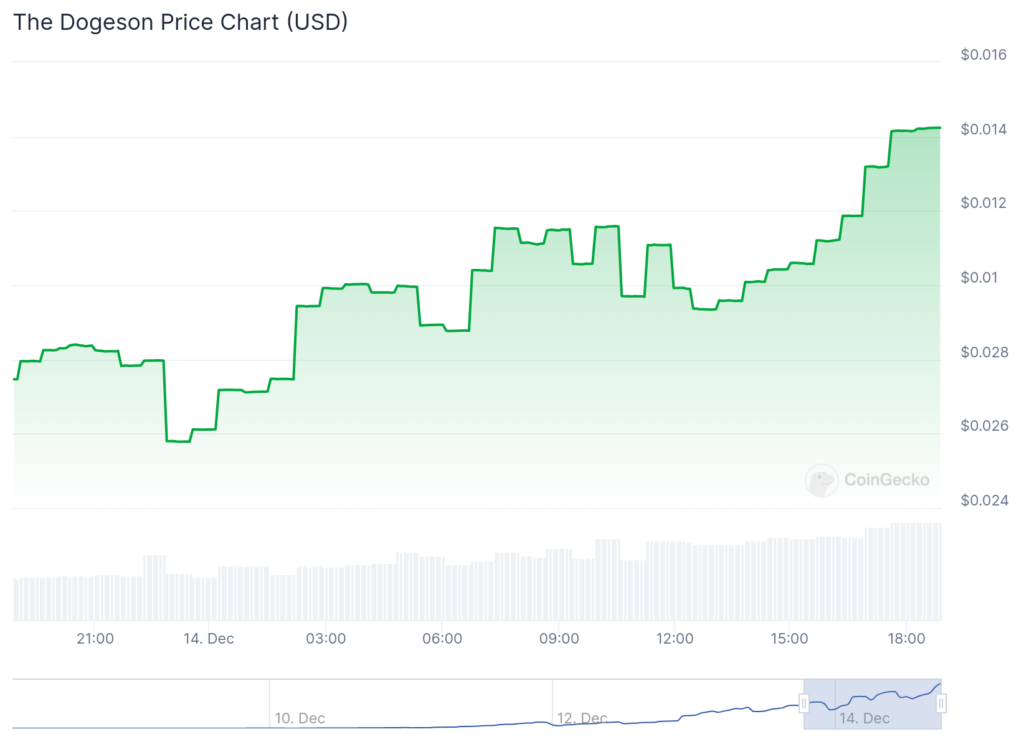
Shiro Neko
Shiro Neko (SHIRO) is a new cryptocurrency project that blends blockchain technology with play-to-earn (P2E) gaming.
Its ecosystem is built around a native token that can be used for in-game purchases, staking, and governance.
It’s up over 83% at last check, with a market cap of about $441 million.
The project emphasizes a community-driven approach, immersive gaming experiences, and collectible in-game assets, including NFTs. It aims to attract both gamers and crypto enthusiasts through competitive challenges and real-world rewards
Shiro Neko is also building on Shibarium, the Layer 2 blockchain for the Shiba Inu ecosystem, further anchoring itself in a popular crypto community. Additionally, the project is venturing into entertainment by launching an animated series featuring “Shiro” the cat.
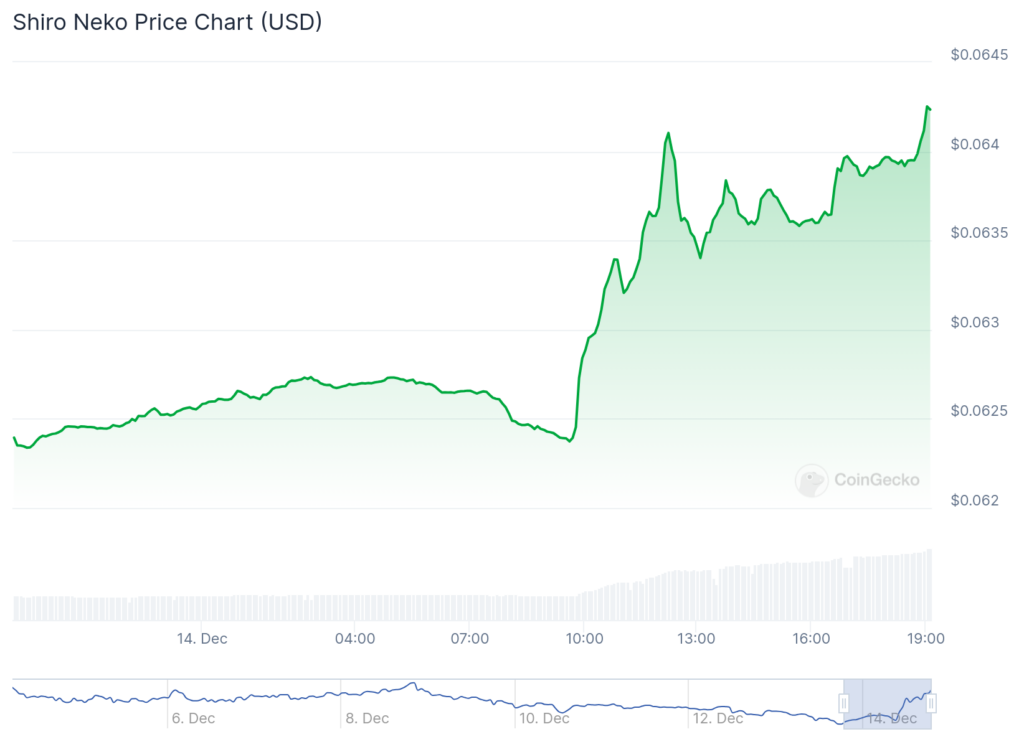
The token recently had its Initial Exchange Offering (IEO) on Gate.io, with 88 billion tokens available for sale, representing 0.01% of its total supply of 1 quadrillion tokens.
This reflects a focus on early adoption and community-building in the crypto-gaming landscape.
Orbit
Orbit (ORBIT) was up 77.6% at last check Saturday, with a market cap of roughly $44 million.
Built on the Blast Chain, the native utility token of the Orbit Protocol serves multiple purposes including facilitating governance, incentivizing participants, and enabling staking for rewards.
The protocol also boasts a Total Value Locked (TVL) of over $6.4 million and a fixed total supply of 100 million.
As of now, ORBIT’s market performance shows significant price fluctuations, with a 24-hour range of $0.02543 and $0.06379.
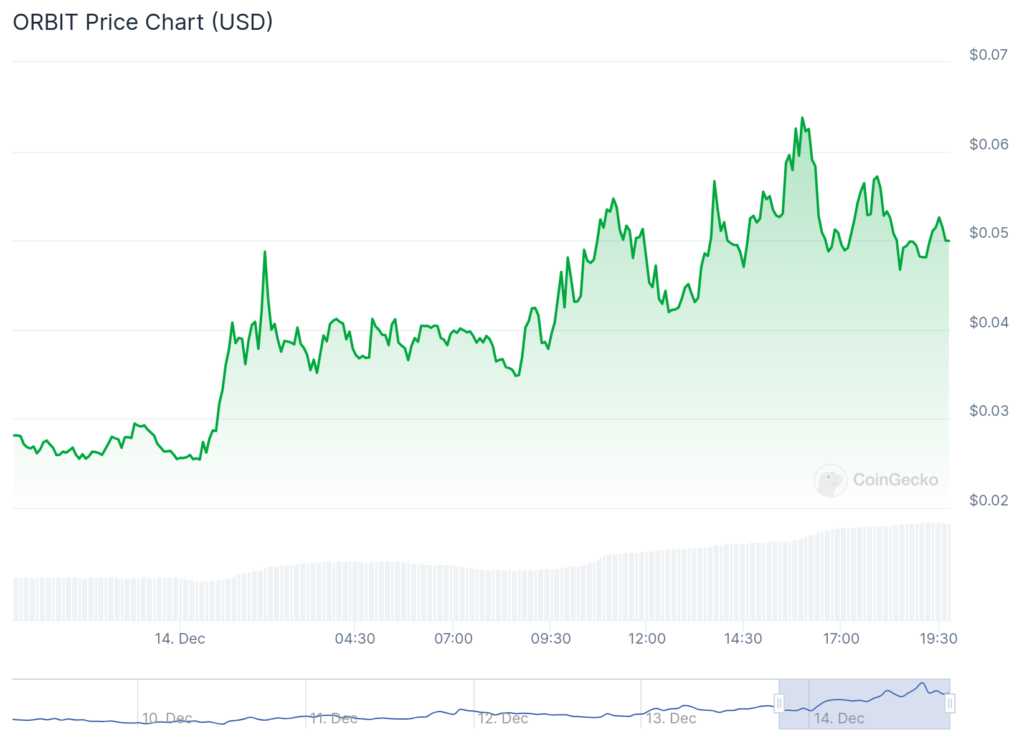
Source link

BTC Risks Falling To $20K If This Happens

Most Layer 2 solutions are still struggling with scalability

Here’s why Stellar Price Could Go Parabolic Soon

Perp-Focused HyperLiquid Experiences Record $60M in USDC Net Outflows

Experts say these 3 altcoins will rally 3,000% soon, and XRP isn’t one of them

Robert Kiyosaki Hints At Economic Depression Ahead, What It Means For BTC?

BNB Steadies Above Support: Will Bullish Momentum Return?

Metaplanet makes largest Bitcoin bet, acquires nearly 620 BTC

Tron’s Justin Sun Offloads 50% ETH Holdings, Ethereum Price Crash Imminent?

Investors bet on this $0.0013 token destined to leave Cardano and Shiba Inu behind

End of Altcoin Season? Glassnode Co-Founders Warn Alts in Danger of Lagging Behind After Last Week’s Correction

Can Pi Network Price Triple Before 2024 Ends?

XRP’s $5, $10 goals are trending, but this altcoin with 7,400% potential takes the spotlight

CryptoQuant Hails Binance Reserve Amid High Leverage Trading

Trump Picks Bo Hines to Lead Presidential Crypto Council
182267361726451435

Why Did Trump Change His Mind on Bitcoin?

Top Crypto News Headlines of The Week

New U.S. president must bring clarity to crypto regulation, analyst says

Will XRP Price Defend $0.5 Support If SEC Decides to Appeal?

Bitcoin Open-Source Development Takes The Stage In Nashville

Ethereum, Solana touch key levels as Bitcoin spikes

Bitcoin 20% Surge In 3 Weeks Teases Record-Breaking Potential

Ethereum Crash A Buying Opportunity? This Whale Thinks So

Shiba Inu Price Slips 4% as 3500% Burn Rate Surge Fails to Halt Correction

Washington financial watchdog warns of scam involving fake crypto ‘professors’

‘Hamster Kombat’ Airdrop Delayed as Pre-Market Trading for Telegram Game Expands

Citigroup Executive Steps Down To Explore Crypto
Mostbet Güvenilir Mi – Casino Bonus 2024

NoOnes Bitcoin Philosophy: Everyone Eats
Trending

 3 months ago
3 months ago182267361726451435

 Donald Trump5 months ago
Donald Trump5 months agoWhy Did Trump Change His Mind on Bitcoin?

 24/7 Cryptocurrency News4 months ago
24/7 Cryptocurrency News4 months agoTop Crypto News Headlines of The Week

 News4 months ago
News4 months agoNew U.S. president must bring clarity to crypto regulation, analyst says

 Price analysis4 months ago
Price analysis4 months agoWill XRP Price Defend $0.5 Support If SEC Decides to Appeal?

 Opinion5 months ago
Opinion5 months agoBitcoin Open-Source Development Takes The Stage In Nashville

 Bitcoin5 months ago
Bitcoin5 months agoEthereum, Solana touch key levels as Bitcoin spikes

 Bitcoin5 months ago
Bitcoin5 months agoBitcoin 20% Surge In 3 Weeks Teases Record-Breaking Potential


